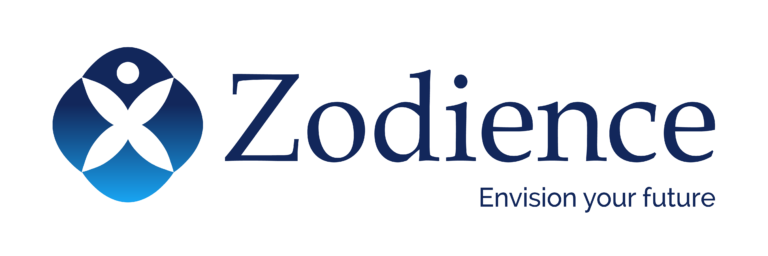
Mastering the Art of Resume Writing
The Magic Words
The job market can be competitive, with hundreds of applicants vying for the same position. An expertly written resume can be the difference between getting an interview and being hired. While there is no one-size-fits-all formula for a perfect resume, certain magic words can increase your chances of getting hired. This article will explore these magic resume words and how to use them effectively.IT recruiter
1. Action verbs
Action verbs are potent tools that can demonstrate your skills and accomplishments clearly and concisely. Instead of using passive language, such as “responsible for” or “involved in,” use active language that shows what you did and how you did it. For example, instead of stating something like “responsible for managing a team,” say, “led a team of 10 people to exceed sales goals by 20%.” Here are some examples of action verbs to use on your resume:
- Achieved
- Created
- Developed
- Improved
- Initiated
- Launched
- Managed
- Organized
- Resolved
- Trained
2. Results-oriented language
Employers want to see results, and your resume should reflect that. Instead of simply listing your job responsibilities, focus on the results you achieved in that position. Use numbers and data to quantify your achievements, such as “increased revenue by 25%” or “reduced expenses by $50,000.” This type of language shows that you are results-oriented and can deliver tangible outcomes. Here are some examples of results-oriented language to use on your resume:
- Increased/decreased
- Generated
- Achieved
- Reduced
- Saved
- Improved
- Grew
- Expanded
3. Industry-specific jargon
Using industry-specific jargon can demonstrate that you understand the field you’re applying for and have the necessary knowledge and experience. However, avoid overdoing it, as too many jargon words can make your resume difficult to read and understand. Here are some examples of industry-specific terminology to use on your resume:
- Agile methodology
- Big Data
- Content management system (CMS)
- Customer relationship management (CRM)
- Key performance indicators (KPIs)
- Search engine optimization (SEO)
- User experience (UX)
- Virtualization
4. Transferable skills
Transferable skills can be utilized in different industries and job functions. They can be instrumental if you change IT recruiter or apply for a job outside your current industry. These skills can include communication, problem-solving, time management, and teamwork. Here are some instances of transferable skills to use on your resume:
- Adaptability
- Collaboration
- Critical thinking
- Leadership
- Organization
- Problem-solving
- Time management
- Verbal and written communication
5. Soft skills
Soft skills are personal attributes that can help you succeed in the workplace, such as emotional intelligence, empathy, and interpersonal skills. These skills are often just as critical as technical skills and can set you apart from other applicants. Here are some instances of soft skills to use on your resume: IT recruiter
- Adaptability
- Communication
- Creativity
- Empathy
- Leadership
- Problem-solving
- Teamwork
- Time management
6. Power words
Power words are words that convey a sense of confidence and authority. They can help you stand out and show that you’re a strong candidate for the position. However, use them sparingly, as they can become repetitive and lose their impact. Here are some examples of power words to use on your resume:
- Accomplished
- Expert
- Innovative
- Proactive
- Visionary
- Strategic
- Dynamic
- Pioneering
7. Quantifiable achievements
Quantifiable achievements are specific accomplishments that can be measured, such as revenue growth or project completion. Including quantifiable achievements on your resume can demonstrate your ability to deliver results and set you apart from other candidates. Here are some examples of measurable achievements to use on your resume:
- Increased revenue by X%
- Reduced expenses by X%
- Completed project X ahead of schedule
- Improved customer satisfaction ratings by X%
- Achieved X% sales growth in the first year
- Managed a team that performed an X% increase in productivity
8. Key terms from the job description
Another helpful way to increase your chances of getting hired is to use key terms from the job description on your resume. Employers may often use applicant tracking systems (ATS) to scan resumes for specific keywords, so using the correct words can help your resume get past the initial screening process. However, only include relevant keywords that accurately reflect your skills and experience. Here are some examples of key terms to use on your resume:
- Required skills listed in the job description
- Specific job titles listed in the job description
- Industry-specific terms listed in the job description
9. Education and certifications
If you have relevant education or certifications, include them on your resume. This can demonstrate your knowledge and expertise in a particular field and set you apart from other candidates. Include the institution’s name, the degree or certification earned, and relevant coursework or accomplishments. Here are some examples of education and credentials to include on your resume:
- Bachelor's degree in X
- Certified X Specialist
- Completed X course in Y
- Received X award for outstanding achievement in Y
10. Relevant experience
Finally, make sure to highlight your relevant experience on your resume. This can include previous job titles, responsibilities, and accomplishments that showcase your ability to excel in the position you’re applying for. Be sure to customize your resume to the specific job you’re applying for and emphasize the most relevant experience to the work. Here are some examples of relevant experience to include on your resume:
- Previous job titles that match the place you're applying for
- Responsibilities that demonstrate relevant skills and experience
- Accomplishments that show you can deliver results in the position you're using for
Using the right words on your resume can significantly impact your job search. Using action verbs, results-oriented language, industry-specific jargon, transferable skills, soft skills, power words, quantifiable achievements, critical terms from the job description, education and certifications, and relevant experience, you can create a resume that stands out and increases your chances of getting hired. Remember to customize your resume to the specific job you’re applying for and highlight the skills and experience that are most relevant to the position. With the proper resume, you can land the job of your dreams.IT recruiter






